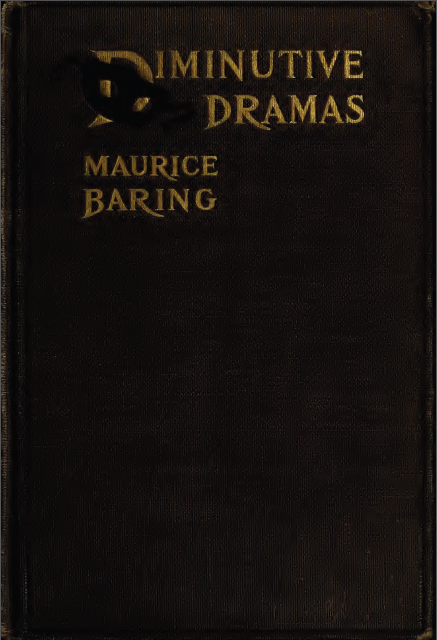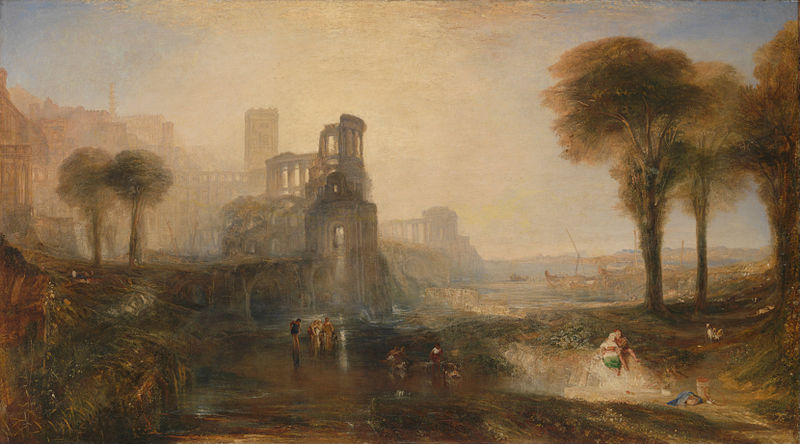Before the picnic breaks up and all the guests are drowned in the Bay of Naples, peacock and eels are served. Baring’s sense of humor is satirical and macabre. Here is one of his jokes in Caligula’s Picnic, a one-act closet drama:
Proteus: I once knew a man who ate twenty-seven eels for a bet.
Demophilus: (really interested) Oh! Did he win?
Proteus: Yes. But he died afterward.
Here is the scene. “A large banqueting table in the centre of a bridge, which stretches for three miles between Puteoli and Baiae. Emperor Caligula is reclining in the place of honour. There are hundreds of guests.” Unexpectedly, Caligula “makes a signal, upon which a regiment of Praetorians, concealed in a neighboring tent, rush among the guests armed with swords and sharp tridents, and proceed to toss them into the sea. The meal breaks up in confusion.”

Baring’s probable source is an anecdote in Robert Louis Stevenson’s “Æs Triplex” [“Triple Brass”]. According to Stevenson, who liked horror and violence, the event is humorous. “Perhaps the reader remembers, “he writes, “one of the humorous devices of the deified Caligula: how he encouraged a vast concourse of holiday-makers on to his bridge over Baiæ bay; and when they were in the height of their enjoyment, turned loose the Prætorian guards among the company, and had them tossed into the sea. This is no bad miniature of the dealings of nature with the transitory race of man. Only, what a chequered picnic we have of it, even while it lasts! and into what great waters, not to be crossed by any swimmer, God’s pale Prætorian throws us over in the end!”
J.M.W Turner painted Caligula’s Palace and Bridge in 1833. Turner embellished the scene with a picnic in the lower right foreground.
See Maurice Baring Caligula’s Picnic (1911) from Diminutive Dramas (London, 1911); Robert Louis Stevenson. “Æs Triplex [Triple Brass].” The Works of Robert Louis Stevenson, Andrew Lang, ed. London: Chatto and Windus, 1891.

